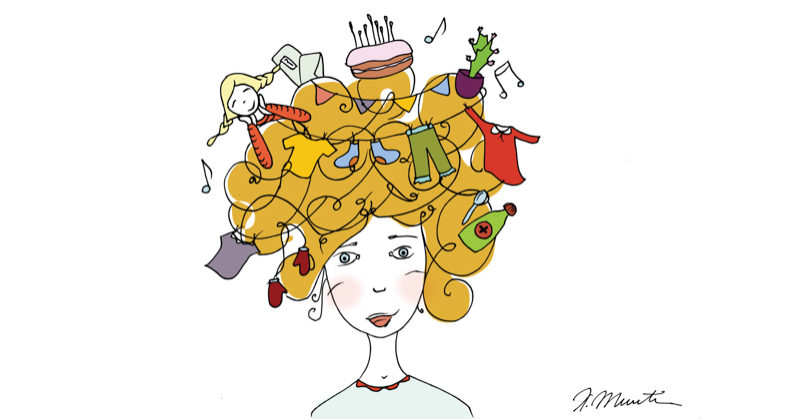Complaining and the Expat: Could You Stop for 21 Days?
Let’s face it – as expats, most of us complain…a lot! In fact, daily. We complain about so many things, from the weather to the economy to football (hello, World Cup!). However, as expats, have you noticed that when we are in groups, we tend to concentrate our complaining on the expat experience in Switzerland (or wherever we are in the world)? In fact, rather embarrassingly, if you google “complaining expats,” pages spring up from Bali, Korea, China and many other locations that boggle at the phenomenon of the Whingeing Expat. Oh, dear.
I have personally started to notice that I complain a lot. What about you? First, let’s be clear what complaining is. Will Bowen from The Complaint Free Challenge defines it as “an energetic statement that focuses on the problem at hand rather than the solution sought.” So complaining is usually in the tone of, “How dare this happen to meeeeeeeeeeee!” rather than relating an event that sticks to the facts. To take a very British example, this is the difference between:
a. “It’s raining this morning. I will need to take my umbrella to work,” and
b. “I can’t believe it’s raining again! It rained all last week and it is going to ruin the walk to
work! Why is it always raining?”
Do you see the difference?
Waiter! Waiter! There’s a fly in my soup! It is not a complaint if something needs to be improved and speaking your truth will create action that works towards a resolution. Ask yourself: “Is there a ‘fly’ in my soup?” Can you state the actual situation without adding all the thinking that is attached to it and the emotions? Can you separate the ego from the event?
Complaining is not to be confused with informing someone of a mistake or deficiency so that it can be put right. – Eckhart Tolle, A New Earth
Have you noticed that when groups of people get together, especially expats, complaining settles in? It is because complaining is contagious and weirdly competitive. Once one person starts sharing their story about “you wouldn’t believe what happened on the bus with the pram yesterday,” then another person adds her story (with a little one-upmanship) and then another story is added that increases the horror, and so on. Pretty soon there is a group pity party happening, everyone is upset, and the general conclusion is that all people on buses are horrible and selfish!
Within groups, what we are “against” unites us and gives us identity. We are all from different countries and we use complaining about our daily lives to bond. We can’t say what we are “for,” but we are clear regarding what we are “against,” creating those us-versus-them situations that I have often written about. Unless of course, horror of horrors, you have been deemed to have “gone native,” and then all hope is lost and no more G&Ts for you!
So why do we feel so bummed out by complaining and listening to others complain? Research by Robert Sapolsky from Stanford University found that [1] exposure to a stressor — such as listening to someone spread a nasty rumour at work — for more than 30 minutes leads to elevated cortisol levels that hamper synaptic connections and speed up cell death. This can start to affect our brain’s capacity to retain information and solve problems, as well as bum us out! Yikes!
Now before we sink into complaining about complaining, let’s note that there are actually a few benefits to complaining! Complaining can be “a communication made in the hope that someone will recognize…suffering. Once recognition is achieved, something inside the complainer feels satisfied” [8], according to Richard B. Joelson. Bottling up, repressing and staying mute about negative experiences is the equivalent of being banished to a cave! In a country where we have trouble communicating effectively due to language differences, and where we feel the resident population “doesn’t get us,” being in a room/bar with other like-minded souls can be a cathartic sharing experience. Guy Winch agrees that ”squelching our dissatisfaction is not a recipe for psychological well-being” [4]. If we are unable to express how we are feeling, we will simply sit with our thoughts until our mood sinks into the Swiss-basement-with-bomb-shelter. Depression can start to edge into our daily experience, and almost everyone knows someone this has happened to within our communities.
Complaining, in my mind, is not the same as talking vulnerably and honestly about hard truths. Nor is [it] the same as calling out injustice and fighting against it. – Steven Parton [2]
Venting can be a good thing. In small doses. When your gatherings descend into whingeing every single time you meet, are you feeling better or worse by the end? Are you uplifted, or has your energy departed on the next punctual Swiss train? “Misery not only loves company, it derives validation from it” (Will Bowen, A Complaint Free World). The key to venting, according to Gary Winch [4] is to not let it go on for too long and descend into whining. Stay empathic, listen, and resist the temptation to heap your own experiences on top of the beautiful and distressed person who needs a good vent. She/he needs to be heard, not out-complained!
So why is it that expats grumble and complain so much? There is a certain aspect of “culture shock” at play but at its heart, I believe, is our sense of our lack of power [5]. Within psychological research, there is a term called the “complaint threshold” that must be reached before someone decides to complain. One of the factors that determines our personal “complaint threshold” is our “locus of control”[6], or how much power we feel in a situation. The painful truth is that being an expat can feel like a very disempowering experience, especially for “trailing spouses.” So we complain to get validation, attention and sympathy. The cruelty is that complaining itself can rob us even further of our power, casting us as the victim in our life story.
When you complain, you make yourself into a victim. When you speak out, you are in your power. So change the situation by taking action or by speaking out if necessary or possible; leave the situation or accept it. All else is madness. – Eckhart Tolle, The Power of Now: A Guide to Spiritual Enlightenment
I started to notice how often I complain. It’s embarrassing, and a great deal of the time, automatic and unconscious. It has become so ingrained into how I communicate that it simply comes tumbling out without much thought. Complaining is patterned into the way I use language, how I interact with friends and how I self-deprecate. The neurology behind this automatic behaviour is horribly simple: if I keep complaining I am re-enforcing my brain’s synaptic pathways that hardwired my brain into a negative Whingeing Pom [3], as my Aussie friends would say! In other words, I sound like a broken record and I don’t even know I’m doing it!
So if habit got me into this mess, can the power of habit get me out of it? The answer appears to be “yes,” according to Will Bowen from A Complaint Free World [7], who leverages the habit-forming 21-days principle (that an action repeated over 21 days will create a habit) to help people break their addiction to complaining their way through life. More than 11 million people worldwide have taken his challenge. Make that 11 million and one! Yup, I am giving it a go! And darn, it is hard! I am constantly having to stop what I am saying and ask myself the simple questions: ”Is this what I really mean? Is this what I want to say? Is this the truth?” Often the answer is no. Take, for example, my daughter’s hair. She doesn’t brush it. The house rule is: you can’t leave the house with unbrushed hair. “Brushed” appears to be a contested term! I defined it as “properly and fully brushed hair with no tangles.” I am learning to be more compassionately direct in my communication. In this case it means no more, “Dear lord! The state of your hair! What will people think! Have you seeeeeeen your hair? Why are you not brushing your hair properly?!? No, waving the brush in the general direction of your head does not count!” The truth of the matter is a simple: “Please brush your hair.” No more complaining. More clarity.
So I started the Complain Free Challenge three days ago. According to the rules, every time I complain, I have to start again. Funnily enough, I am back to Day One. I am trying not to complain about it! I am learning so much about how I communicate and am speaking much more mindfully! So will you join me on the Challenge? Write in the comments below if you have tried it already (how did it go?), or if you want to join me, and we can swap experiences!
See if you can catch yourself complaining, in either speech or thought, about a situation you find yourself in, what other people do or say, your surroundings, your life situation, even the weather. To complain is always nonacceptance of what is. It invariably carries an unconscious negative charge. ― Eckhart Tolle, The Power of Now: A Guide to Spiritual Enlightenment
By Tammy Furey
Tammy eases the expat parenting experience through coaching and teaching throughout Switzerland. She also writes, blogs, gives talks, does the washing, doesn’t hoover enough, and parents Missy M, her daughter! Find out more at www.fureycoaching.com
Illustration by Laura Munteanu
Laura has studied journalism and advertising, and has worked as a journalist and an illustrator. She has illustrated for magazines, websites, charities and diverse campaigns. She lives in Zurich with her husband and ten-year-old daughter.
Footnotes
- Trevor Blake, “Three Simple Steps: A Map to Success in Business and Life.”
- “Mindful (R)evolution: the Duty of the Privileged to Overcome Injustice,” at CuriousApes.com
- Whinging Pom: A person of British origin who will consistently complain about any situation that they may face. They are emotionally unable to deal with any sort of adverse condition without commenting negatively about it. Urbandictionary.com
- The Squeaky Wheel: Complaining the Right Way to Get Results, Improve Your Relationships, and Enhance Self-Esteem
- See April 2018’s Expat Corner column.
- Robert Biswas-Diener, “The Three Types of Complaining,” Psychology Today
- http://www.willbowen.com/complaintfree
- Complaining. Psychology Today, 2018




